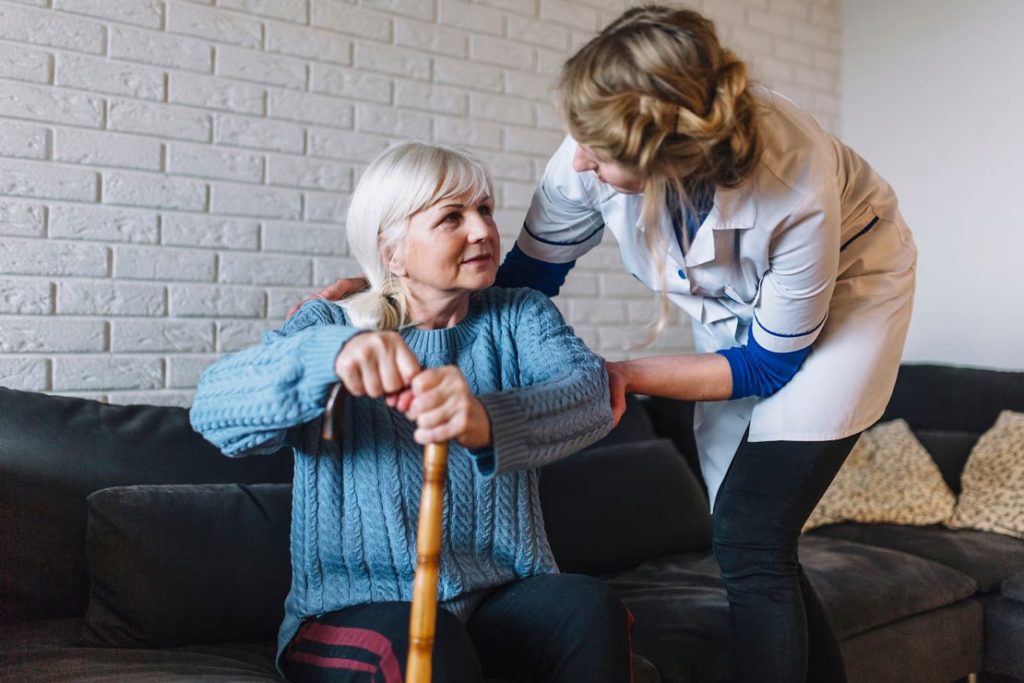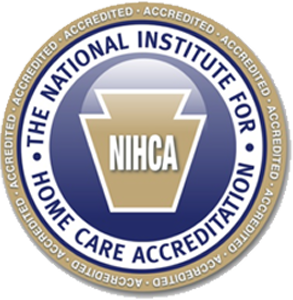
As you age, maintaining your health, independence, and overall wellbeing becomes increasingly challenging. For many seniors, staying in their own home is a top priority. But declining mobility, chronic conditions, and other age-related difficulties can make this difficult without proper support. This is where home health care can make all the difference.
Home care involves and non-medical services delivered in the comfort of a senior’s own home by licensed professionals. Rather than relocating to a facility, people can receive customized care and assistance while remaining in familiar surroundings. Depending on the specific home care company, some services may include physical therapy, occupational therapy, speech therapy, medication reminders, help with activities of daily living such as bathing and dressing, light housekeeping, meal preparation, and companionship.
The benefits of home care are numerous. First and foremost, it allows older adults to age in place safely and comfortably. Being at home is important for mental health and overall wellbeing in one’s later years. Home care also provides socialization to prevent isolation and loneliness. At the same time, seniors receive health care related support tailored to their unique needs, allowing them to maximize independence while getting the care required. With watchful eyes and ears regularly visiting the home, potential safety issues can also be identified and addressed proactively.
Home care empowers seniors to comfortably and safely remain where they most want to be – at home. With professional care and support brought into the residence, older adults can maximize health, independence, and quality of life as they age.
Guaranteeing Caregiver Reliability and Safety
When hiring a home healthcare worker, it is necessary to make sure they are reliable, safe, and properly certified. Conducting thorough background checks on potential caregivers is an important first step. This should include criminal history checks, reference checks with previous employers, and verification of any required licenses or certifications. Home care agencies will handle the background check process.
Liability insurance is another key consideration for home care workers. Reputable agencies will insure their employees in case of incidents on the job.
By conducting due diligence on background, training, and insurance, families can feel more secure in the reliability and safety of their home caregiver. This provides peace of mind and helps you know that your loved one will receive attentive care from a qualified, responsible individual. Proper vetting is essential for this personal care arrangement in the home environment.
Personal Care Assistance
For many seniors, daily activities like bathing, getting dressed, and using the bathroom can become difficult or even impossible without assistance. Personal care assistance provides help with these intimate tasks to allow seniors to maintain their dignity and independence.
A personal care assistant can provide hands-on support such as helping a person get in and out of the bathtub or shower safely, washing their back or hair, drying them off and helping them get dressed. They assist with more private tasks like using the toilet, changing incontinence pads, and other bathroom needs. The assistant is there to lend a hand, while allowing the senior to do as much as possible themselves.
Beyond bathing and dressing, a personal care assistant may also help with grooming by trimming fingernails, brushing and styling hair, and applying lotion or creams. They can also aid in transfers, such as from a wheelchair to a bed or toilet. Through it all, the assistant provides these services in a respectful manner that maintains the senior’s dignity.
Having an assistant available for personal care not only makes daily living easier, but also gives family members a feeling of relief and security. It allows their loved one to remain in their own home longer without having to rely entirely on family. With a trained assistant assisting regularly with bathing, dressing, grooming and other intimate tasks, seniors can maintain their independence and quality of life.
Mobility Support and Incontinence Management
Mobility support and assistance with transfers are critical components of home healthcare. Being able to move around independently promotes patient health, safety, and quality of life. But many homebound patients require help with ambulation and transferring to prevent falls or injury. Caregivers can provide standby assistance, walk alongside patients holding a gait belt, or physically help patients transfer between bed, chair, toilet, etc.
Incontinence care is another notable area of support. Incontinence, or the inability to control bladder and bowel function, affects many homebound patients. Frequent toileting assistance helps reduce episodes of incontinence. Caregivers should provide gentle reminders and prompts to use the bathroom on a schedule. They can also assist with cleansing after incidents, managing incontinence products, and changing soiled clothing or bedding. Moving patients to and from the bathroom safely is vital.
With mobility assistance and incontinence care, the goal is promoting independence while ensuring dignity and comfort. Patients appreciate sensitive, respectful support with intimate care needs. Caregivers should communicate clearly, explain what they are doing, and allow patients to participate as much as possible during transfers and toileting. Guaranteeing privacy and providing emotional support builds trust between caregiver and patient. Mobility assistance enables homebound patients to move freely and confidently within their environment. Incontinence care preserves health and quality of life. Together, they are the basis of compassionate, professional home care.
Nutrition and Medication Reminders
Proper nutrition and medication adherence are imperative for maintaining health as you age. A home healthcare provider can assist elderly clients with meal planning, preparation, and medication reminders to promote independence and wellbeing.
Meal Planning and Preparation – A caregiver can collaborate with the client and family to develop nutritional meal plans that account for medical conditions, medications, food preferences, and abilities. Shopping for nutrient-dense groceries that are easy to prepare can set up simple, healthy meals. Hands-on assistance with chopping, cooking, and safely reheating food may be needed. Portioning meals into microwavable containers makes reheating easy. Regularly clearing and filling the refrigerator removes old ingredients and stocks fresh foods.
Medication Reminders – Keeping track of multiple prescriptions on complex schedules can be daunting. Cueing the client to take medications with reminders, written schedules, or pill boxes can prevent missed doses. For clients who need more help, the caregiver can bring medications to the client and watch the pills being swallowed. Reporting concerns about side effects or changes in condition to the client’s doctor helps maintain safety and efficacy of medication regimens.
Attentive nutritional and medication enable elderly clients to eat well and follow treatment plans. Caregivers are a valuable resource for maintaining health and independence in a person’s later years.
Comprehensive Companion Services
In addition to providing basic care and companionship, many home care agencies offer comprehensive companion services to improve quality of life for seniors and individuals with disabilities or illnesses.
Companions can assist also with light housekeeping tasks like laundry, meal preparation, and cleaning to help maintain a safe and tidy living environment.
Companions can facilitate engagement in hobbies, social activities, and exercise appropriate for the client’s interests and abilities. For example, a companion may take a client to a senior center to socialize and participate in games and events. Or they may go on walks with a client who needs motivation and accountability to stay active.
Companions may assist with cognitive stimulation activities, like reading aloud, completing puzzles, or reminiscing about the past. Adding these services creates a more comprehensive care plan focused on quality of life. With extra assistance from compassionate companions, clients can continue participating in meaningful activities and find comfort in remaining at home.
Assistance at Home
While home care staff may not be certified in nursing, they are trained in vast array of “helper” duties. All of the following may or may not apply, depending on your state, regulations, and the home care company you choose.
For those recovering from illness or injury, managing medical care at home can be challenging. That’s where home care services can provide critical support through assistance provided in the comfort of your own home.
With catheter care, home health aides can help with catheter changes, emptying drainage bags, and keeping the area sanitized to prevent infection. Remind clients when it’s time to take them, and document that medications were taken as prescribed.
Home aides receive training in these specific procedures and are experienced in safely performing them in clients’ homes. This removes the stress and difficulty of trying to manage complex medical tasks on your own. The assistance also helps prevent complications like wounds becoming infected or medications being missed.
Having an extra pair of hands for proper care at home promotes healing and recovery. It allows those recovering from illness or injury to focus on rest and rehabilitation, rather than worrying about changing wound dressings or giving themselves injections. Health care administered at home by qualified professionals sees to it that clients get the treatment they need for optimal health outcomes.
Consider Home Health Care for Your Loved One’s Needs
As our loved one’s age, their health and mobility may decline, making it difficult for them to care for themselves safely at home. You want them to maintain their independence while making sure they get the assistance they require. Home health care offers a compassionate solution that allows seniors to remain in their homes with dedicated support.
With home care from a trusted provider like Ambient Home Care, your parent or family member will receive customized care in familiar, comfortable surroundings. Ambient’s skilled home health aides can help with activities like bathing, dressing, meal prep, medication reminders, and more. Our services are tailored to each client’s needs and preferences.
Remember, home care offers many advantages over facility-based care:
- Personalized one-on-one care on the client’s schedule
- Ability to maintain family connections and friendships
- Improved safety monitoring and response time
- Higher client satisfaction and quality of life
As the most experienced and trusted home care provider in the city, and a family owned/operated business, Ambient Home Care has an impeccable reputation for compassionate, dedicated service. Our expert team can make sure your loved one stays safe and happy at home.
Contact Ambient Home Care today to learn more about our senior care services or request a free in-home assessment. Our experienced team is ready to provide your loved one with customized care that meets their unique needs.
Call (732) 477-2221 now to get started.
The level of care your loved one receive depends on their needs. We have the healthcare pros to make that perfect fit and keep them safe & content right at home!
We offer:
- Daily Living Assistance; including things like bathing & dressing
- Transportation Services
- Housekeeping
- Companionship Services; including recreation & conversation
- AND MORE!
Get in touch with us! We’ll be happy to set up an appointment to assess your situation and offer the services you need for your loved one to live their best life!
We offer:
- Daily Living Assistance; including things like bathing & dressing
- Transportation Services
- Housekeeping
- Companionship Services; including recreation & conversation
- AND MORE!





